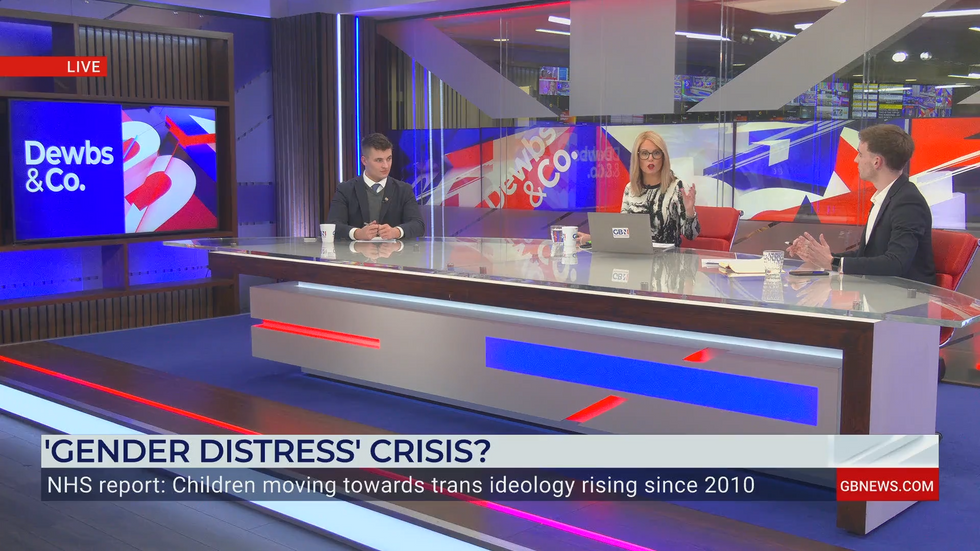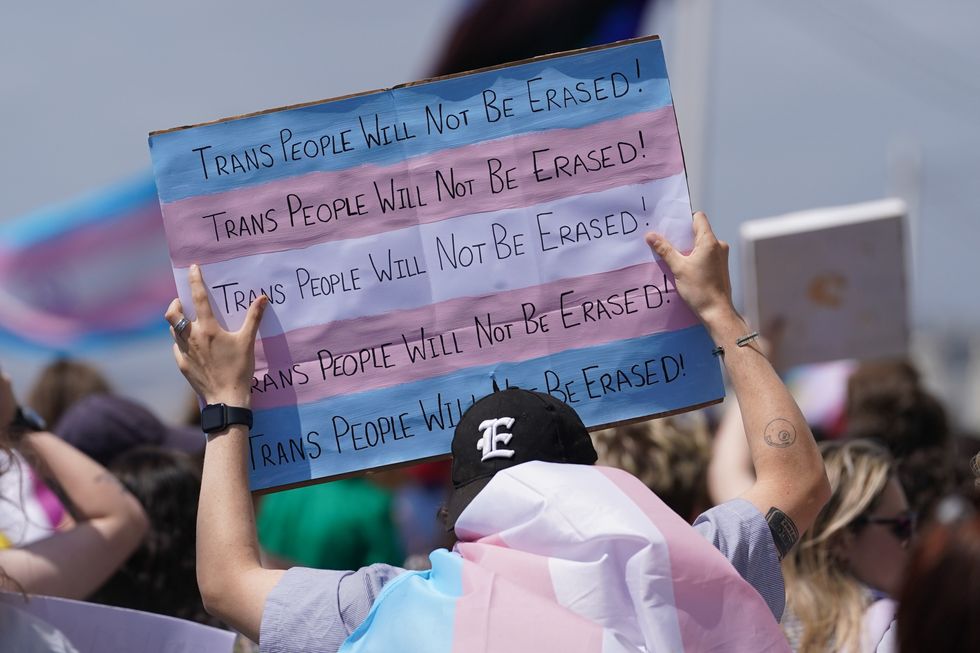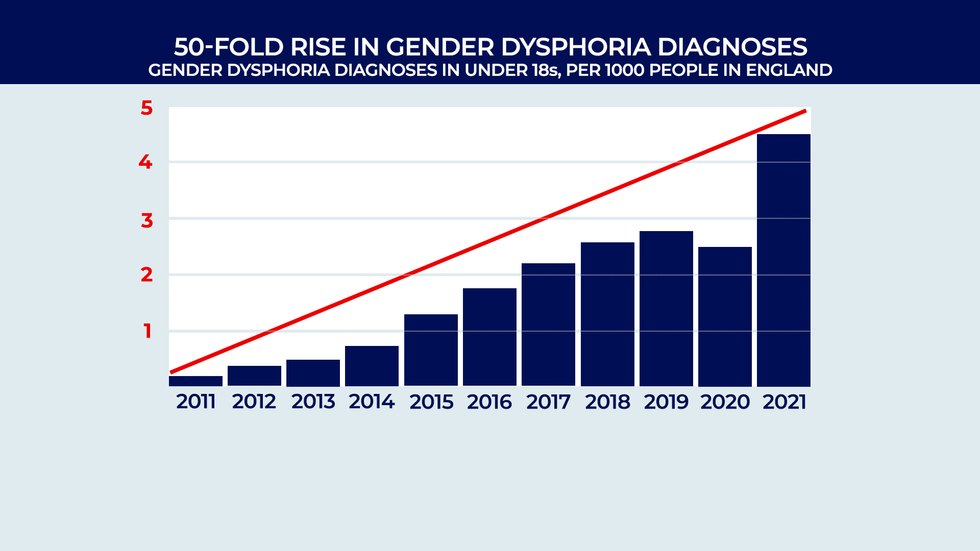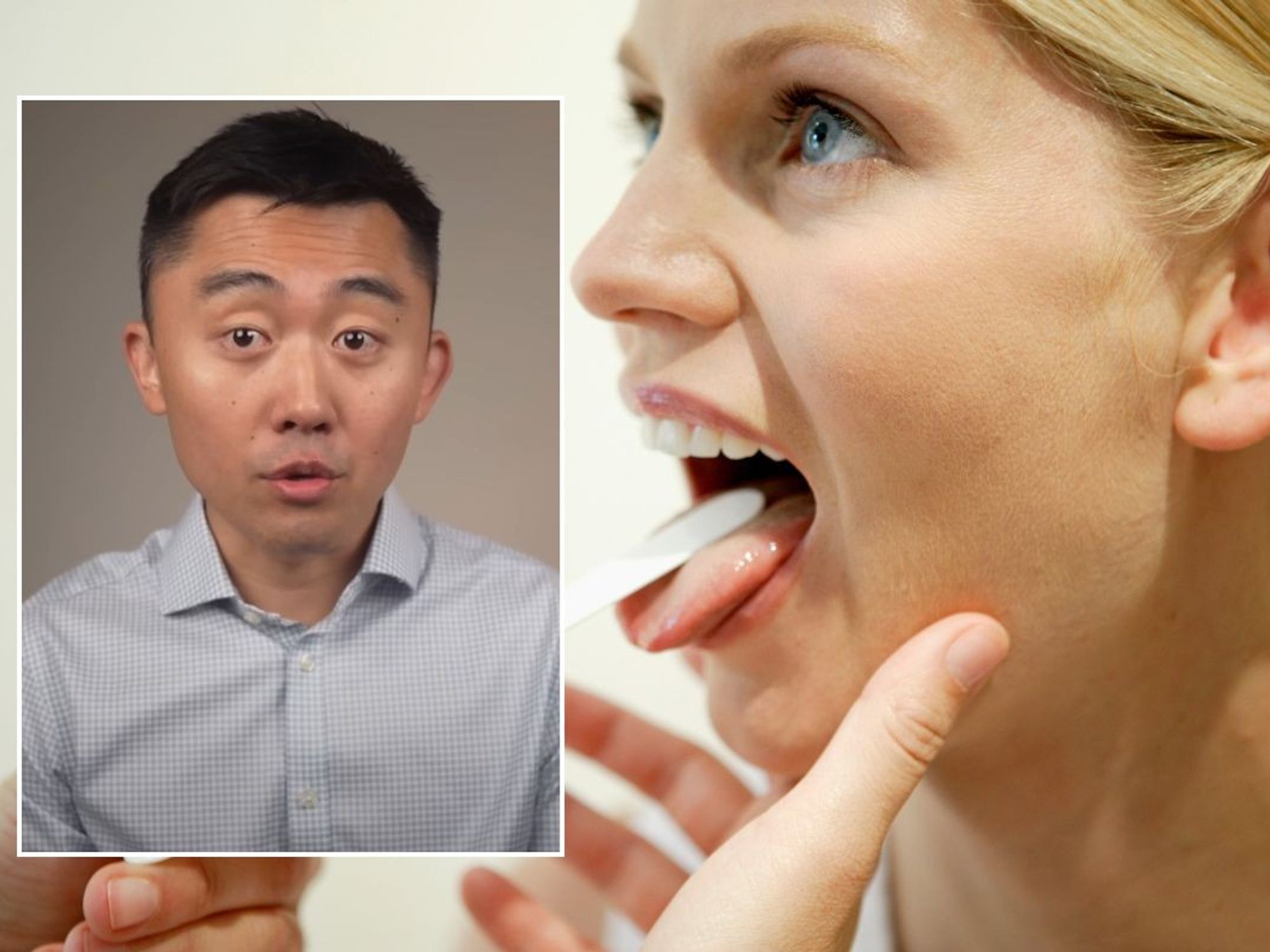Michelle Dewberry COMBATS Lefty in fiesty debate on trans women in single sex spaces
GB NEWS
The GB News star's debating partner stuttered as Michelle probed
Don't Miss
Most Read
Trending on GB News
Watch as Michelle Dewberry tears into political commentator Samuel Sweek during a frosty row about women’s only spaces.
The GB News star asked Sweek four times whether it’s reasonable to expect women to get undressed “in front of a male”, in reference to trans females using women’s spaces.
Sweek appeared perplexed and stuttered on multiple occasions as Michelle repeatedly asked the same question.
“Why should I, as a female, be forced to get changed in front of a male?”, she asked.

Michelle Dewberry clashed with Samuel Sweek on GB News
GB NEWS
Sweek responded: “This is the conversation about where you view gender and someone’s right to autonomy.”
Michelle interjected to ask the same question again, remarking: “I’ve got no interest in how someone views their own gender. My question is, why should I, a female, be forced to get undressed in front of a male?”
LATEST DEVELOPMENTS
The political commentator then said he views trans women as women, a point Michelle railed against by saying they are “biologically male”.
She then proceeded to ask the same question again, to which Sweek responded after a moment of hesitation: “Nobody is making you do that.”
Michelle said there are legal cases ongoing where the exact scenario she describes is the point of contention.
“I can think of one such case in the NHS where some nurses are taking action because they were forced to use a gender neutral toilet with a trans female using the facilities”, she added.

The matter was discussed on GB News
GB NEWS
“Why should I, a female, be forced to get changed in front of a biological male?”, she asked again.
“I will say trans men are men and trans women are women. That is my opinion and I think we need to respect that”, Sweek asked, before suggesting Michelle does not think trans people ‘exist’.
Michelle hit back: “So what you’re saying is, I, as a biological female has to get in front of some fella because you decide what the label is.
“I don’t think trans women are a figment of your imagination, but they are biologically male.
“Lots of women like me do not want to get dressed in front of biological men. That is not a controversial view. We have single-sex spaces for a reason and an epidemic of male violence against women and girls. We fought hard to get our spaces.
“We deserve those single-sex spaces and they are often responsible for keeping us safe, there are many of us who do not want biological men in our spaces and nor should we have them there to satisfy other people’s descriptions.”
After a moment of silence, Sweek said the pair would have to “agree to disagree”, only for Michelle to probe further.
“We always have to, but it’s not you who has to get naked and get changed in front of someone of the opposite biological sex against your will”, she said.
 The study marks the first comprehensive analysis of gender distress across EnglandPA
The study marks the first comprehensive analysis of gender distress across EnglandPA“It’s always us women that have to suck it up and a lot of us are fed up of it.”
It comes after it was revealed the number of children diagnosed with gender dysphoria in England has increased fiftyfold over the past decade, new research has revealed.
A study of GP records shows diagnoses rose from approximately one in 60,000 children in 2011, representing 192 cases nationally, to one in 1,200 by 2021, equating to 10,291 cases.
The landmark research, conducted by the University of York and published in the Archives of Disease in Childhood, provides the first comprehensive analysis of gender distress across England using GP records rather than specialist service data.

There's been a 50-fold rise in gender dysphoria diagnoses
GB NEWS
The findings show that while numbers have risen dramatically, cases remain relatively uncommon overall.
From 2015 onwards, prevalence rose more quickly among females, with girls twice as likely as boys to receive diagnoses by 2021.
More than half of those diagnosed experienced anxiety, depression or had self-harmed, with mental health issues comparable to or exceeding levels seen in children with autism or eating disorders.
Professor Tim Doran from the University of York noted that most GP practices see very few cases. "Even though we've seen this very rapid increase, most practices will have zero, one or two children with gender dysphoria on their books," he said.
The study found that under five per cent of diagnosed children received puberty suppressing hormones, while eight per cent were prescribed masculinising or feminising hormones.








